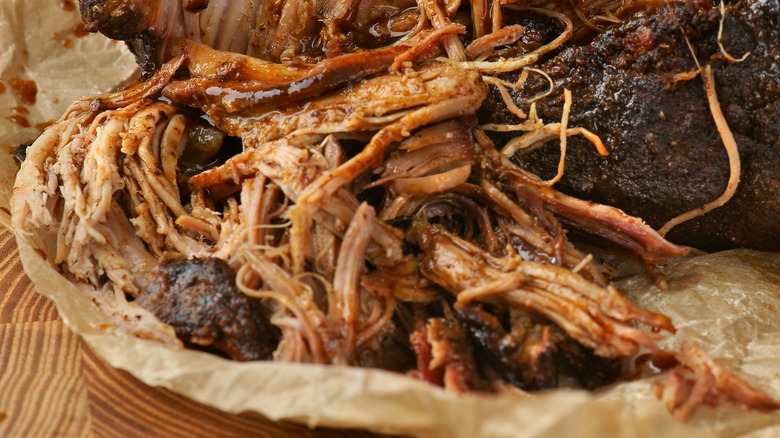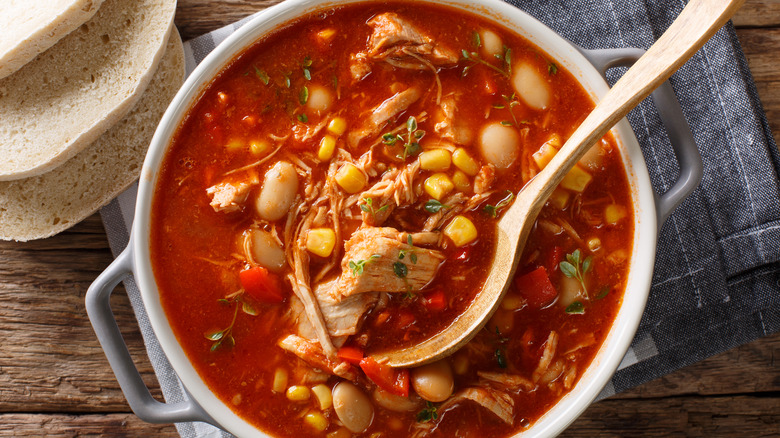The Best Way To Fix Overcooked Pulled Pork
There are few things more disappointing than investing an entire day of cooking a delicious hunk of pork only to sink your teeth into a dried-out bite of shredded sawdust. You shake your fist at the sky and wonder how hours of smoking or slow-cooking could end in BBQ embarrassment. Dry pulled pork happens, but there are a few quick fixes you can try to restore your meat to its tender, juicy glory.
There are a few guidelines to follow if you want to avoid dried pulled pork from the get-go. First, choosing the ideal cut is important, and The Spruce Eats suggests the pork shoulder, commonly available at the store in two cuts: the Boston butt and the picnic shoulder. The shoulder cuts have collagen from the leg bone and are heavily marbled with fat, two elements that help create juicy pulled pork that is the stuff of dreams. You've also got to watch that meat thermometer while cooking. BBQ Host explains that 205-210 degrees Fahrenheit yields perfectly tender pork, but cooking over 210 degrees causes the meat to dry out and toughen up.
While cooking your pork, be sure to reserve the juices, fat drippings, or cooking liquid if you're the type to set it and really forget it. These juices will come in very handy if you do end up with overcooked pulled pork jerky. If you didn't reserve any liquid, fear not; there are a few other methods that can save the day.
Not today, dry pork
A lot can happen in the hours of cooking time required to properly prepare pork, and the chaos of the kitchen can cause overcooking that leads to a dried-out dish. If your pulled pork is parched and you forgot to reserve the fatty juices rendered during the cooking process, there are a few ways to fix a dry pull.
There's nothing a little sauce can't fix, and BBQ Host says the robust flavors and moisture provided by the BBQ sauce of your choice will mask any off-flavors and reconstitute the dried, overcooked pulled pork. If your plans for pork don't include BBQ sauce, Home Cook World suggests using other liquids like broth, apple juice, or an apple cider and vinegar combo. Taste the pork first and then add the liquid of your choice depending on if you want a hint of sweetness from fruit juice, savory essence from broth, or a tangy kick from the cider vinegar. Whatever sauce or liquid you choose, make sure you're adding it to warm pork to ensure that it soaks up as much moisture as possible.
Further, dry, overcooked pulled pork can also be improved by simply making it an ingredient in a larger dish. A pulled pork sandwich slathered in condiments and coleslaw will taste moist and delicious no matter how dry it starts out. A BBQ pizza puts dry shreds to good use by combining them with zingy sauce and covering them with rich melted cheese, or you can make it the star of a rich chili or shredded pork stew.

